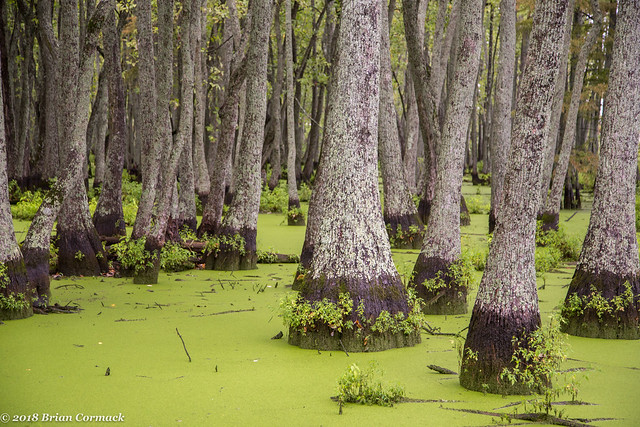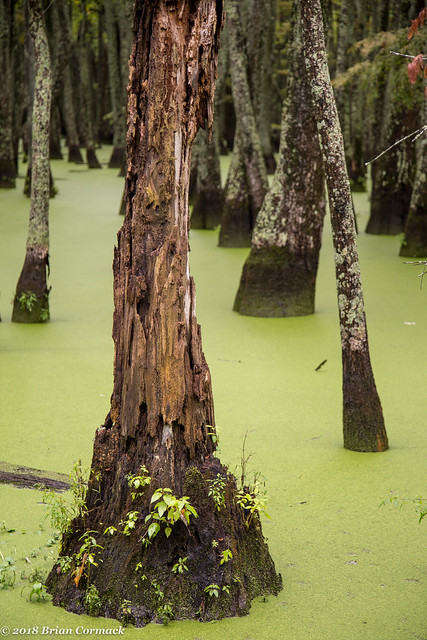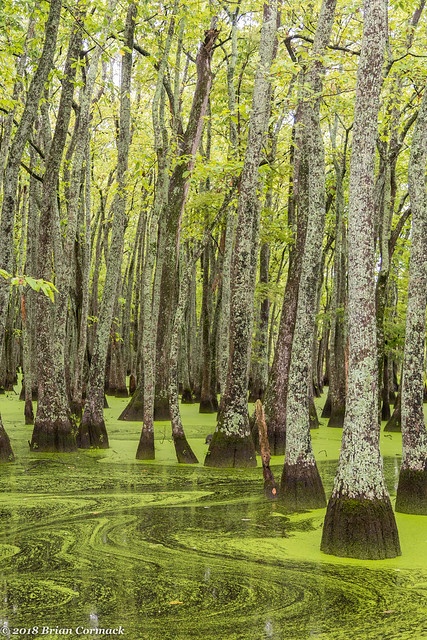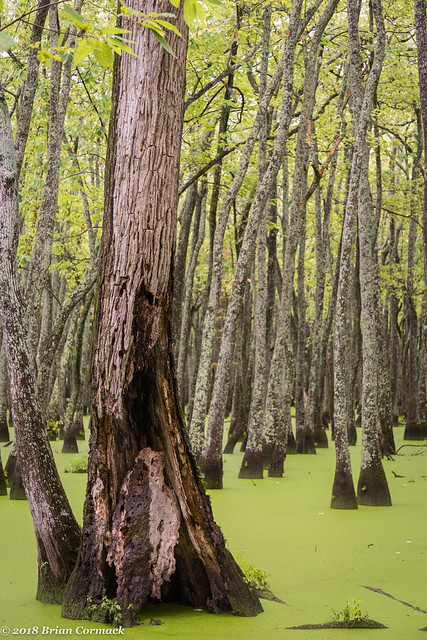
Looking at the map, I'm guessing that the oxbow lake was once part of the Arkansas River (maybe?). This is all a guess - I can't even find out what the name of the lake is.
What looks like algae in the lake is actually a tiny plant called duckweed (or Lemnoideae if you want to be fancy). Duckweed is an aquatic plant that floats on or just below the surface, and it thrives in slow-moving bodies of water like this lake.

Duckweed can be a nuisance, since it grows rapidly and can quickly overtake a pond. But it has some benefits. Scientists are utilizing it as a new source of biofuel, and farmers are using it as a food source for tilapia. Duckweed is also great at removing pollutants, making it a good way to filter water.

My favorite thing about duckweed is that it covers the surface of water like a carpet, which prevents mosquitoes from laying eggs in the still water. I wasn't bothered by any mosquitoes while I was there, which is an amazing statement to make when you're outside in the Delta.



No comments:
Post a Comment